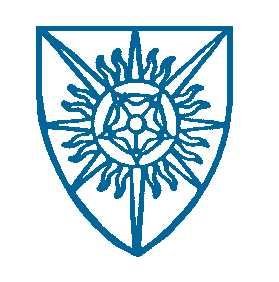The American School of Classical Studies at Athens was founded in 1881 to provide American graduate students and scholars a base for their studies in the history and civilization of the Greek world. Today it is still a teaching institution, providing graduate students a unique opportunity to study firsthand the sites and monuments of Greece. The School is also a superb resource for students and senior scholars pursuing research in many fields ranging from prehistoric to modern Greece, thanks to its internationally renowned libraries, the Blegen, focusing on all aspects of Greece from its earliest prehistory to late antiquity, and the Gennadius, which concentrates on the medieval to modern Greek world, as well as the Malcolm H. Wiener Laboratory for Archaeological Sciences.
THE HARRY BIKAKIS FELLOWSHIP
Deadline: January 15, 2023
This fellowship was established by the late Lloyd E. Cotsen, former Chair of the Overseers of the Gennadius Library, to honor Harry Bikakis, attorney of the American School, who exhibited much devotion and loyalty to the School during his term from 1979 to 1995.
Eligibility: Graduate students at U.S. or Canadian institutions, or Greek graduate students, whose research subject is ancient Greek law and who need to work at ASCSA libraries; or Greek graduate students working on excavations conducted by or affiliated with the ASCSA.
Terms: Stipend of $1,875. School fees are waived. Fellowship does not include travel costs, housing, board, and other living expenses. A final report is due at the end of the award period, and the ASCSA expects that copies of all publications that result from research conducted as a Fellow of the ASCSA acknowledge the support of the ASCSA and be contributed to the relevant library of the School.
Application: Submit an online application, curriculum vitae, and a description (up to 750 words) explaining the project (or, for applicants seeking participation in fieldwork, your experience and interest in participation in the proposed ASCSA excavation). Arrange for two letters of recommendation to be submitted online.
KRESS PUBLICATION FELLOWSHIPS
Deadline: January 15, 2023
The American School of Classical Studies at Athens is pleased to announce the fourth year of a five-year program of fellowships funded by the Samuel H. Kress Foundation. The Samuel H. Kress Foundation devotes its resources to advancing the history, conservation, and enjoyment of the vast heritage of European art, architecture, and archaeology from antiquity to the early 19th century.
Eligibility: Senior scholars (Ph.D. holders) working on a publication assignment from Corinth, the Athenian Agora, Lerna, or from an affiliated project of the School are eligible to apply. Current staff of the School are not eligible.
Terms: The School awards up to three grants each year. Stipends are for a minimum of three months (up to $10,000) to a maximum of nine months (up to $30,000) to be used between May 1, 2023 and March 31, 2024. School fees, travel costs, housing, board, residence permits (if applicable), and other living expenses are to be paid out of the stipend by the recipient. Applicants are encouraged to include costs for the preparation of illustrations in their budgets. Fellowship stipend cannot be used toward salary replacement. A final report and budget (showing expenditure of all funds) are due at the end of the award period (no later than March 31, 2024), and the ASCSA expects that copies of all publications that result from research conducted as a Fellow of the ASCSA acknowledge the support of the ASCSA and be contributed to the Blegen Library or another relevant library of the School.
Application: Submit an online application; curriculum vitae; proposal (maximum of three pages, single-spaced, including project outline, explanation of goals, statement of the significance of the project, work completed to date, schedule for completion, and budget); letter of support from the appropriate excavation director; and two letters of recommendation.

 This year, the MAA is launching a new way for you to indicate interest in serving on one of our governance, programming, grant, or prize committees. Committee service is critically important to our mission, and we welcome your expertise and efforts. Even if you have already checked the relevant box on your MAA Member Profile page, please confirm your specific area of interest and provide additional information by filling out
This year, the MAA is launching a new way for you to indicate interest in serving on one of our governance, programming, grant, or prize committees. Committee service is critically important to our mission, and we welcome your expertise and efforts. Even if you have already checked the relevant box on your MAA Member Profile page, please confirm your specific area of interest and provide additional information by filling out 

